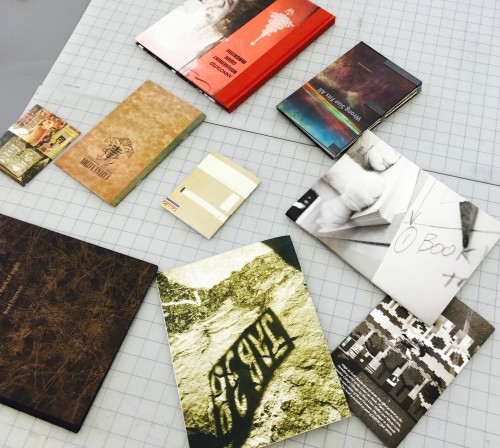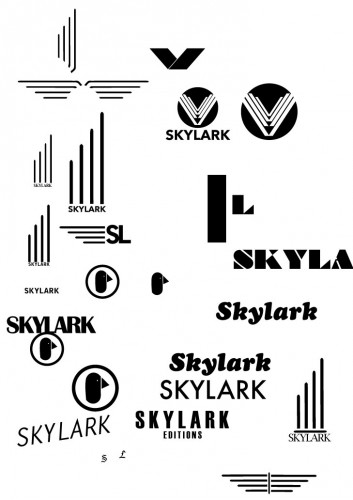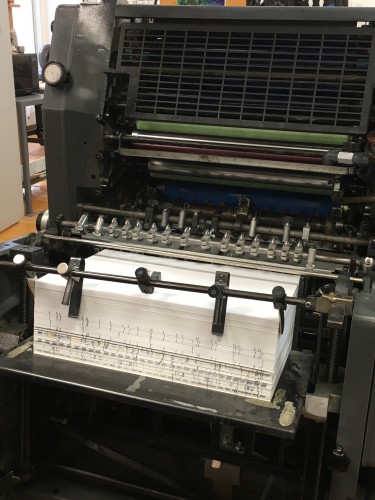Skylark Editions

Comparing a handful of printed objects via Columbia’s Book and Paper Dept.
Since Fall 2015, my 2nd-year MAM colleague Christina Rodriguez and I have been working together to provide business services and insight to an up-and-coming photobook press called Skylark Editions. This press is owned by editors Kelli Connell and Paul D’Amato, two extraordinary photography professors at Columbia.
One of the business services Christina and I have been offering is filing Skylark Editions as a 501(c)3 nonprofit organization. What does this mean exactly? Having a 501(c)3 status means that you are an organization that can be exempt from federal income tax if the organization has a certain purpose. Skylark’s purpose is literary, so it is eligible to begin applying as a 501(c)3 nonprofit.

Phase 1 of the creative process when designing Skylark’s logo
Both Christina and I learned about forms of business organizations via the Arts, Media, and the Law course we took together in our first year of the MAM program. This made us feel informed when we began tackling the 501(c)3 application for Skylark. Undergoing the process has been an experience in itself, though. I’d like to share our biggest takeaways from this opportunity here:
- Research any and all websites with information about registering as a 501(c)3 nonprofit. We discovered that in Illinois you can become a registered nonprofit in as little as 2 months. Compared to the typical 6- to 10-month timeline, this was a game changer. Had we not known this, we would have approached the process in a much different way.
- Registering as a 501(c)3 is different in every state. Make sure that for each state you’re pursuing, you don’t confuse the policies and procedures for filing. I myself am a Michigander and Christina is a native New Yorker, so registering through Illinois was a great learning experience for both of us.
- When consulting, always err on the side of being too informative. Christina and I were selected for this opportunity because we’re both extremely knowledgeable about several areas of business (i.e. marketing, fundraising, new media strategies, strategic planning). That said, it’s easy to forget that our editors may not be as informed as we are about certain business areas. We learned that it’s best to share as much information and knowledge as possible so that our editors felt equally as confident about the progress of the business.
- When consulting with clients, patience is pivotal. Our editors have full-time jobs, and they decided to pursue a photobook press together. Their time and attention is dedicated to teaching Columbia students and devoting themselves to their artistry as photographers. As consultants for the press, patience has been something both Christina and I have had challenges but also successes with. Learning how to be patient has made us stronger businesswomen but also given us certain perspective that one doesn’t simply learn in a classroom. We’re very grateful to have been offered the chance to assist in the launch of Skylark Editions, and look forward to carrying this skill set in our future career endeavors!

Isn’t she a beaut?! Behind the scenes at Columbia’s Book and Paper Dept. with the printer that’s printing our first photobook
